Six things we learned from the Jumbo-Visma Tour de France documentary
From Dumoulin's struggles to that final time trial stage
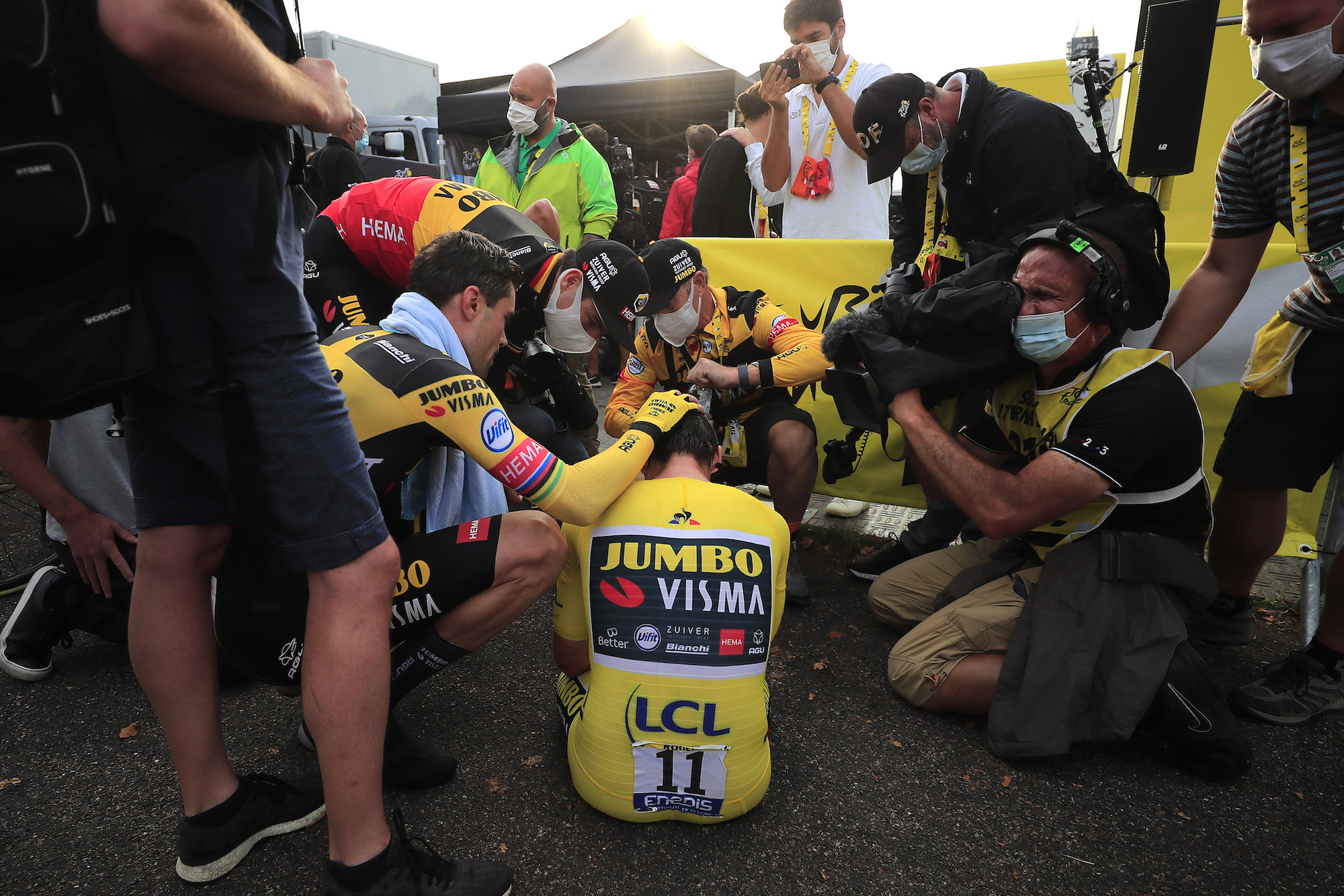
(Photo by Christophe Petit Tesson - Pool/Getty Images)
The latest race content, interviews, features, reviews and expert buying guides, direct to your inbox!
You are now subscribed
Your newsletter sign-up was successful
The culmination of the 2020 Tour de France is one that will be remembered for a long time to come. Central to that story was Jumbo-Visma, the Dutch team appearing to be the one to break Ineos' strangehold on the Tour de France's yellow jersey.
Everything was going to plan, too, with Primož Roglič in the lead and seemingly with ice in his veins as he ticked off the days to go until the Champs-Élysées, largely untroubled by any of his rivals.
That was until the final time trial, when Tadej Pogačar shocked the cycling world with a performance against the clock for the ages.
Dutch broadcaster NOS accompanied Jumbo-Visma for the 21 stages in France, a decision that surely ensured a TV executive somewhere received a considerable bonus this Christmas, and have produced a documentary detailing the ups and downs of their attempt to win the yellow jersey.
>>> Cristiano Ronaldo’s agent moves into cycling with João Almeida and Ruben Guerreiro deal
'Code Geel', Dutch for 'Code Yellow' takes us inside the team bus and onto the massage table to hear the story of the 2020 Tour from the main protagonists.
Dumoulin's warning
The latest race content, interviews, features, reviews and expert buying guides, direct to your inbox!
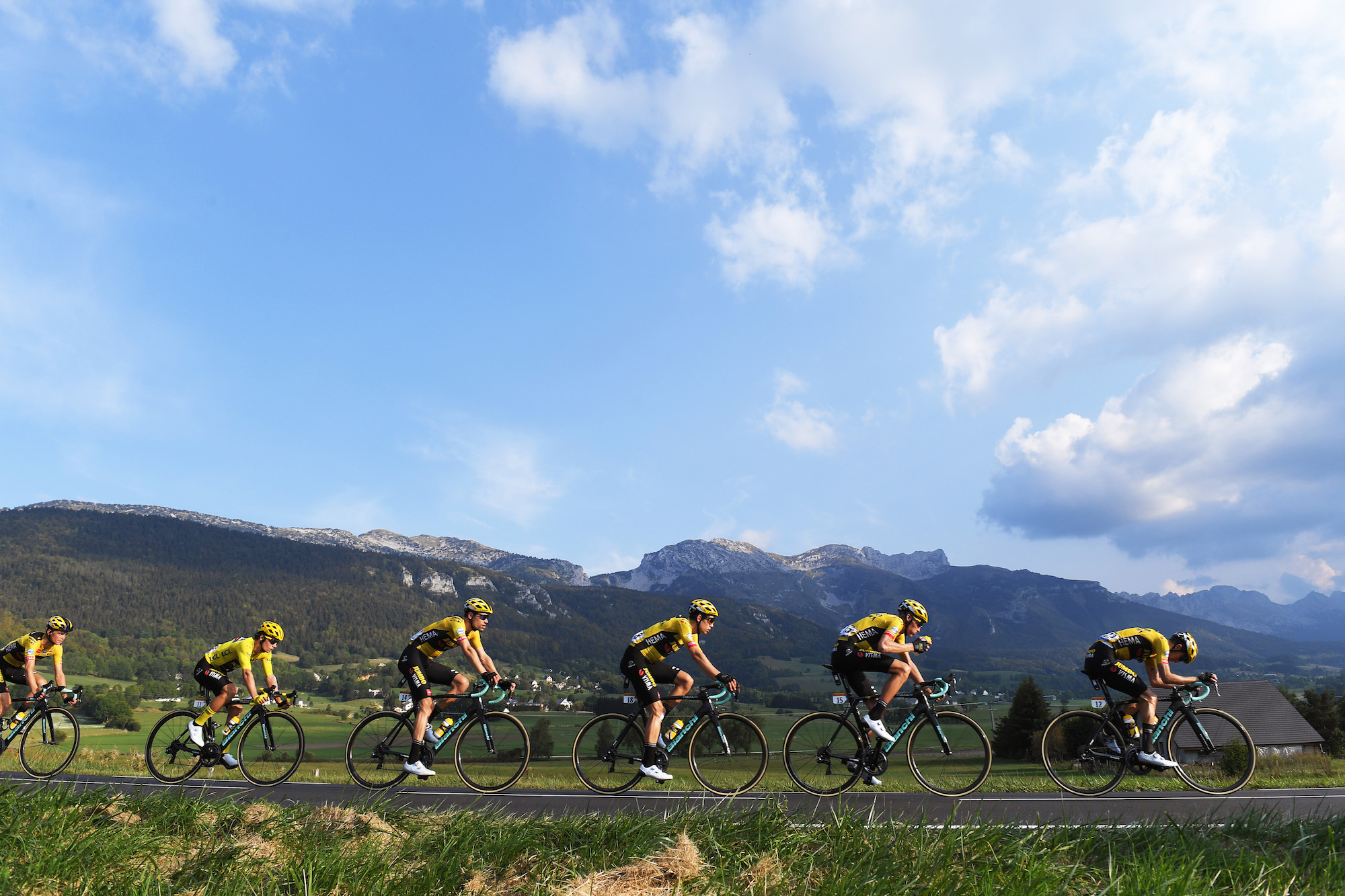
"We all know that we are the strongest. We are self-confident, but stay humble, don't be arrogant," sports director Merijn Zeeman tells the eight Jumbo-Visma riders ready to line up for the Dutch team at the start of stage one in Nice.
Fast forward only one day later to stage two and the warning proves prescient.
"In my opinion, we are taking way too much control of the race right now. We are riding as if we have the yellow jersey already," Dumoulin tells the team car on the radio, later coming up to the car window to continue the discussion.
"I don't think we should be riding around with the aura that we are here and going to win the Tour," the Dutchman continues on the team bus after the stage. "And we are doing that now. I think it's dangerous. You see in the finals that we're just going in with that group of 20. I think that 'humble' remains important."
After impressive performances in French warm-up races such as the Critérium du Dauphiné, Jumbo-Visma had shown their train was capable of matching the dominance shown by Team Ineos in previous Tours, yet that tactic wasn't necessary this time around.
After Roglič loses the yellow jersey to Pogačar on the final day, the team concludes they needed to attack the younger Slovenian more throughout the three weeks, not simply drag him to the finish line, parading their might on the front of the peloton and staving off offensive moves.
Dumoulin's battle with himself
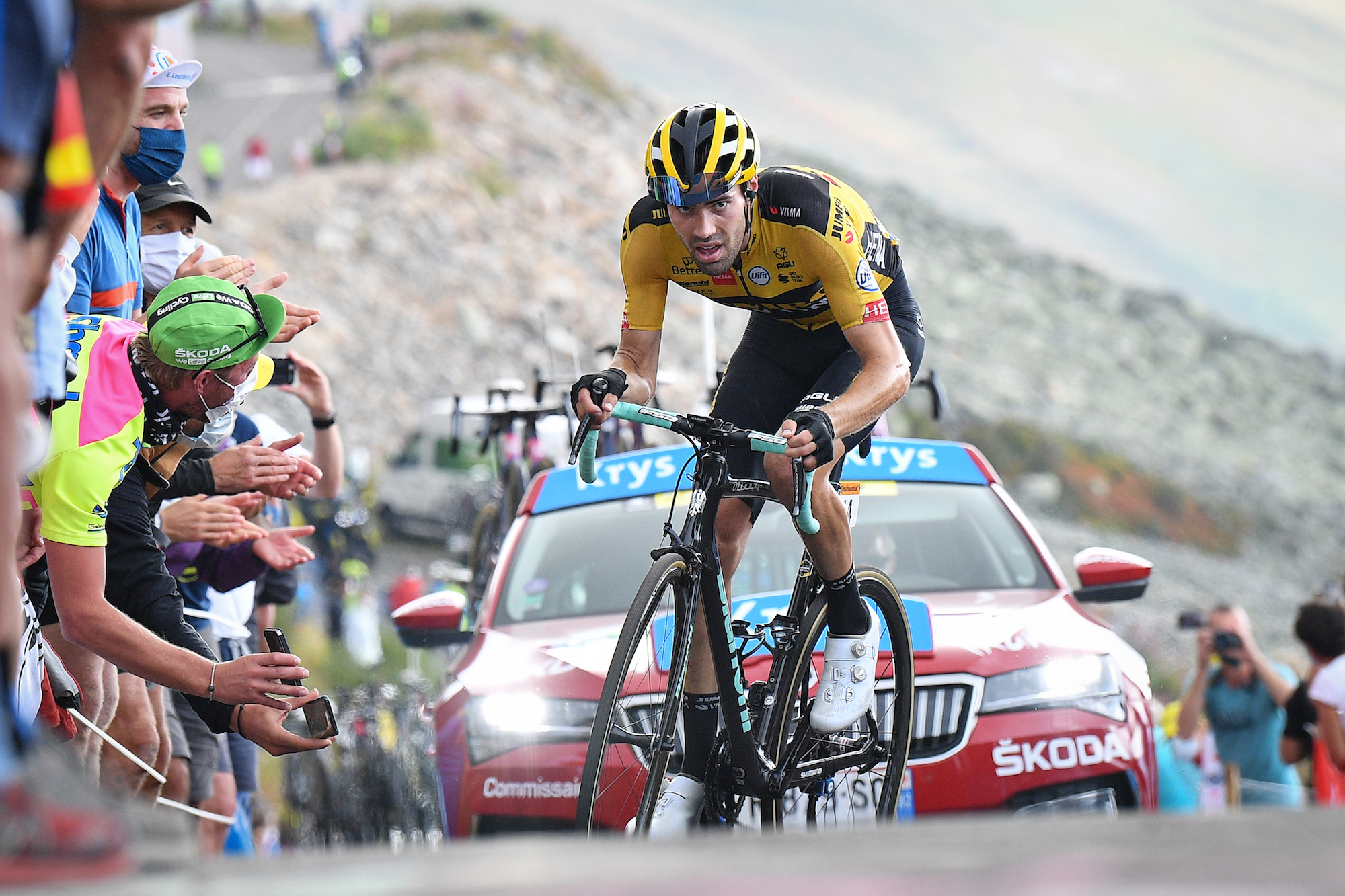
In the team bus before the start Jumbo-Visma's sports director highlights Primož Roglič as clearly the pre-race favourite, but that Dumoulin will be co-leader, believing the Dutchman is the strongest amongst the contenders in the third week of a Grand Tour.
While Dumoulin did finish the Tour with a second place in the stage 20 time trial, securing a seventh overall place on GC, it was in the first half of the race that he struggled.
Dumoulin fusses over his bike set-up in the days after his crash, bringing his saddle down and then up, as he tries to improve the comfort as he rides through the injuries picked up on stage two. The mechanic, worried the quality of his work will be called into question, voices his incredulity at all the adjustments being made, but the sports director explains it's as much a mental block for Dumoulin as a physical one.
On stage six Dumoulin continues to worry about his saddle sore, before he's dropped on stage eight, a day that included the Port de Balès and Col de Peyresourde, losing nearly three minutes to the GC group.
The camera snaps to Dumoulin on the team bus, crying, his head hanging low. "I sit on my bike with so much pain. This is no longer possible. I'm sitting just so cramped on my bike," Dumoulin says.
"Really, I get pain everywhere. My whole body. I'm being dropped on the descent. I just can't...I'm just really scared...because I just...it's not stable at all."
Dumoulin had told the team car he wasn't feeling good, and put himself to work as Jumbo-Visma turned the screw on the mountain day and Roglič removed some rivals from the running.
The Dutchman played down his struggles during the Tour, not wanting rivals to sense any weakness within his team, but after Dumoulin also abandoned the 2020 Vuelta a España, it's a second disappointing season in a row for the 30-year-old and the Netherlands' big hope for Grand Tour glory.
Wout van Aert proves irreplaceable
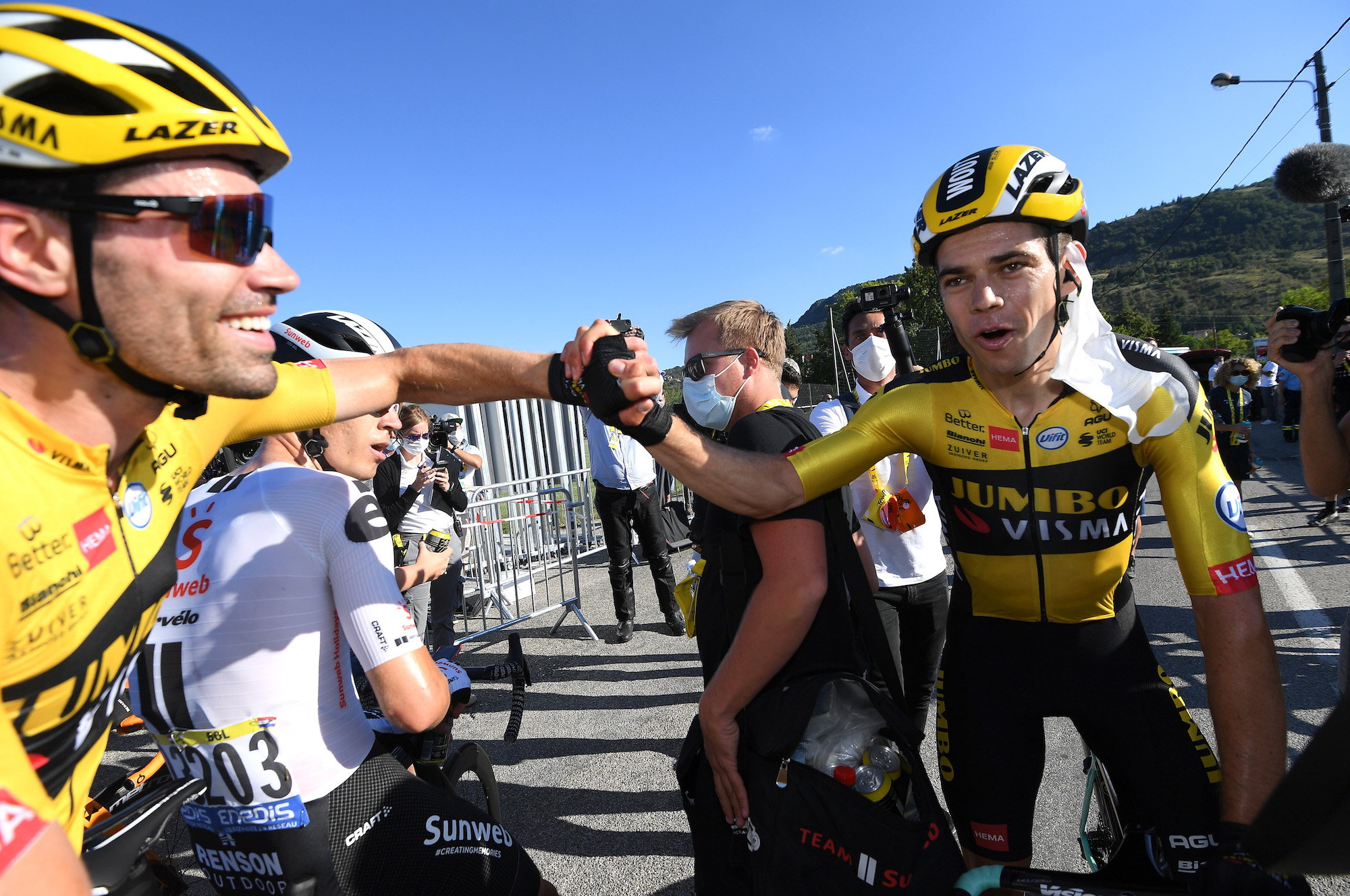
While Dumoulin struggled, Van Aert came to the fore. Helping his team co-leader on stage two after his self-described "silly crash" Dumoulin apologies to Van Aert for thwarting him the chance to contest the sprint finish, and thanks him for not hesitating in dropping back to help.
Van Aert came into the Tour having taken a host of impressive victories since the resumption of the WorldTour calendar on August 1, proclaiming he was in France to help win the yellow jersey for the team, yet this duty was rewarded as he went on to take two stage wins for himself.
Not only that, but Van Aert could regularly be spotted on the front of the bunch pulling the peloton up huge mountains, shelling experienced climbers out the back. Ineos grew used to leaving sprinters at home as they tightened their grip on the French Grand Tour during the 2010s, but Jumbo-Visma have simply found themselves a man who can do both.
Although we don't see much of Van Aert in the documentary, his brief appearance during the Dumoulin crash-saga on stage two showed him to be a humble team player, with the talent to take individual glory too. Heading into 2021, the 26-year-old will be vital to Jumbo-Visma's successes this year, both in the Classics and Grand Tours.
As the race progresses, Jumbo-Visma feel Pogačar looming
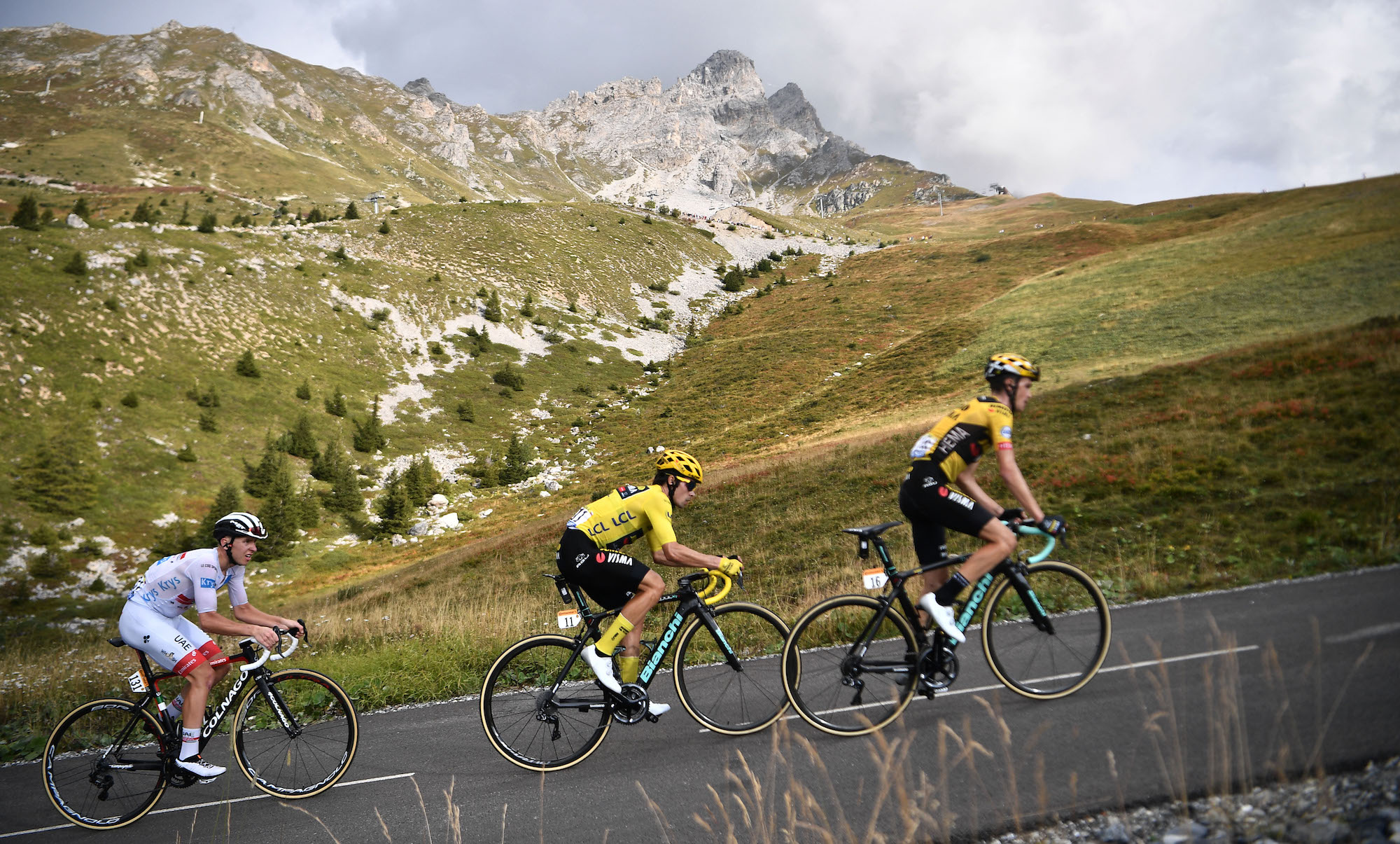
Despite losing more than a minute in the crosswinds on stage seven, Tadej Pogačar showed he'd brought his climbing legs to France when he beat Roglič to the line two days later on stage nine, the sports directors left cursing the younger Slovenian in the car when the result comes over race radio.
This was the day Jumbo-Visma had decided to really take the race to the peloton, setting Roglič up to take the yellow jersey as a consolation prize.
On stage 13 Roglič and Pogačar distance the GC group on the approach to the line. "He is 22, when I was 22 I didn't even ride a bike," Roglič reflects on the way to his hotel after the stage.
More expletive adjectives erupt from the Jumbo-Visma team car when Pogačar wins atop the Grand Colombier on stage 15, now only 40 seconds separate the pair at the top of the overall classification.
"Two days ago if we'd known the outcome we should have had Sepp [Kuss] attack first," one DS reflects after stage 17 when Roglič puts 15 seconds back into Pogačar on the Col de la Loze.
"But every day we bring Pogačar to the last kilometre," Roglič replies.
On stage 17 Kuss had attacked to stretch the race up the formidable Col de la Loze, Miguel Ángel López (Astana) riding away to take the stage victory. Behind, Roglič dropped Pogačar, before the UAE Team Emirates rider fought back to limit his losses.
Jumbo-Visma's preoccupation with Pogačar stemmed from a desire to put the yellow jersey competition to bed, but also they could clearly see how strong he was, and that at the Tour de France anything can happen.
While their strategy on stage 17 paid off, Roglič clearly knew that it wasn't enough to fully defeat his compatriot and that if Pogačar could hitch a ride on the Jumbo-Visma train for most kilometres each day, he would remain a threat.
Zeeman kicked off the Tour
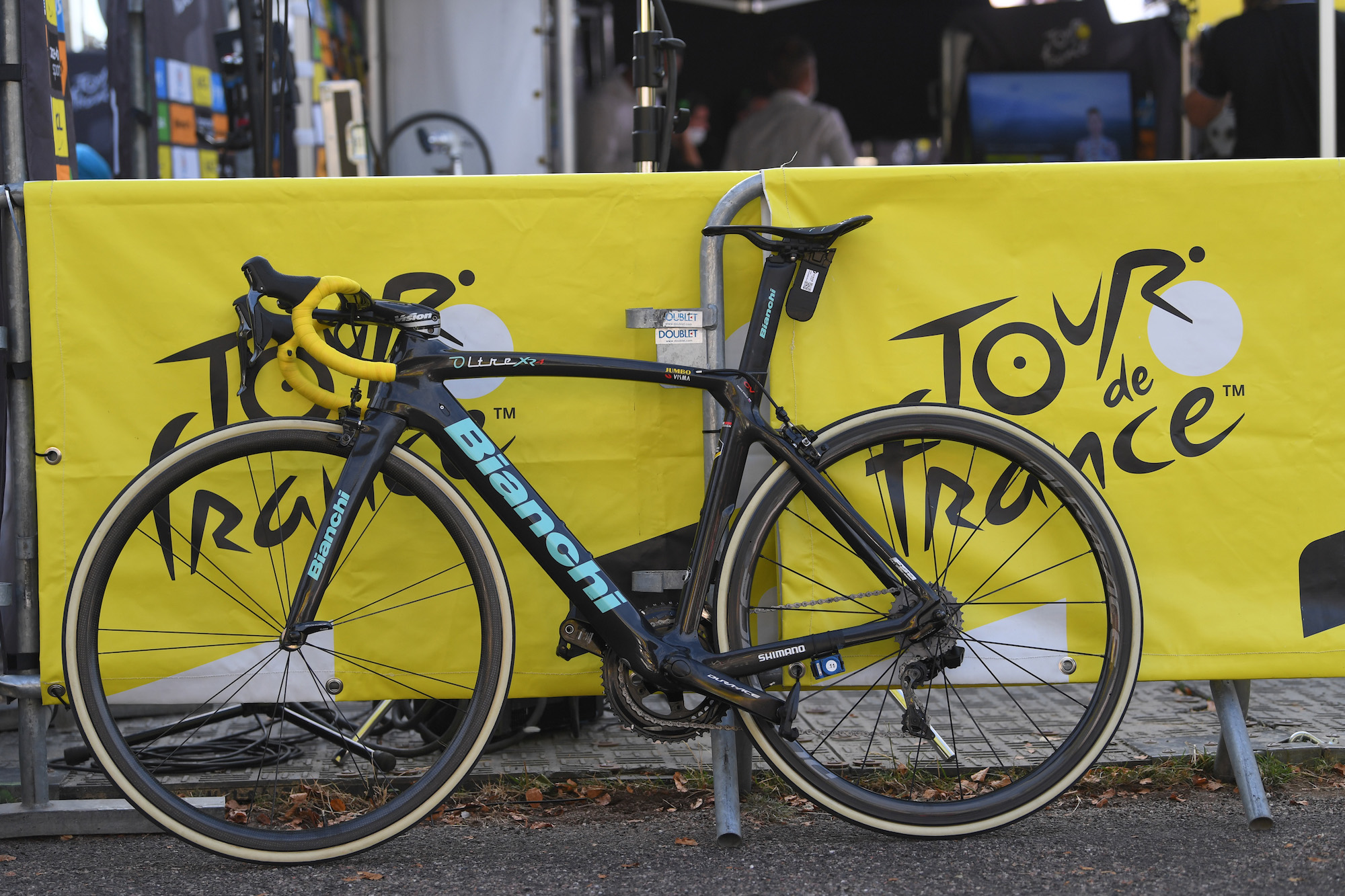
One of the big talking points in the final week was when sports director Merijn Zeeman was kicked off the race for an altercation with UCI officials during a routine bike check of Roglič's machine.
"Yesterday after the finish there was a check on Primož's bike, which actually happens every day. Only now they started tinkering with his bike without one of our mechanics there," Zeeman announced to the team at dinner. "I was outraged by them touching it and became very angry about it. And then I didn't feel right worn. And that's not good. That's what I want to apologise for. If I understand correctly I'm not expelled from the Tour but I'm not allowed to go in the race cars anymore."
"He stood up for the team and for them to have damaged Primož's bike is...I am 100 per cent behind Merijn. So people, behind Merijn and let's go for yellow in Paris, ok?" Plugge adds, putting the matter to bed.
What could have caused such an outburst from Zeeman? Was it just the stresses of the final week getting the better of him? What exactly was the UCI official doing to the bike? Exactly what transpired in this incident is no clearer, and probably never will be.
The final time trial
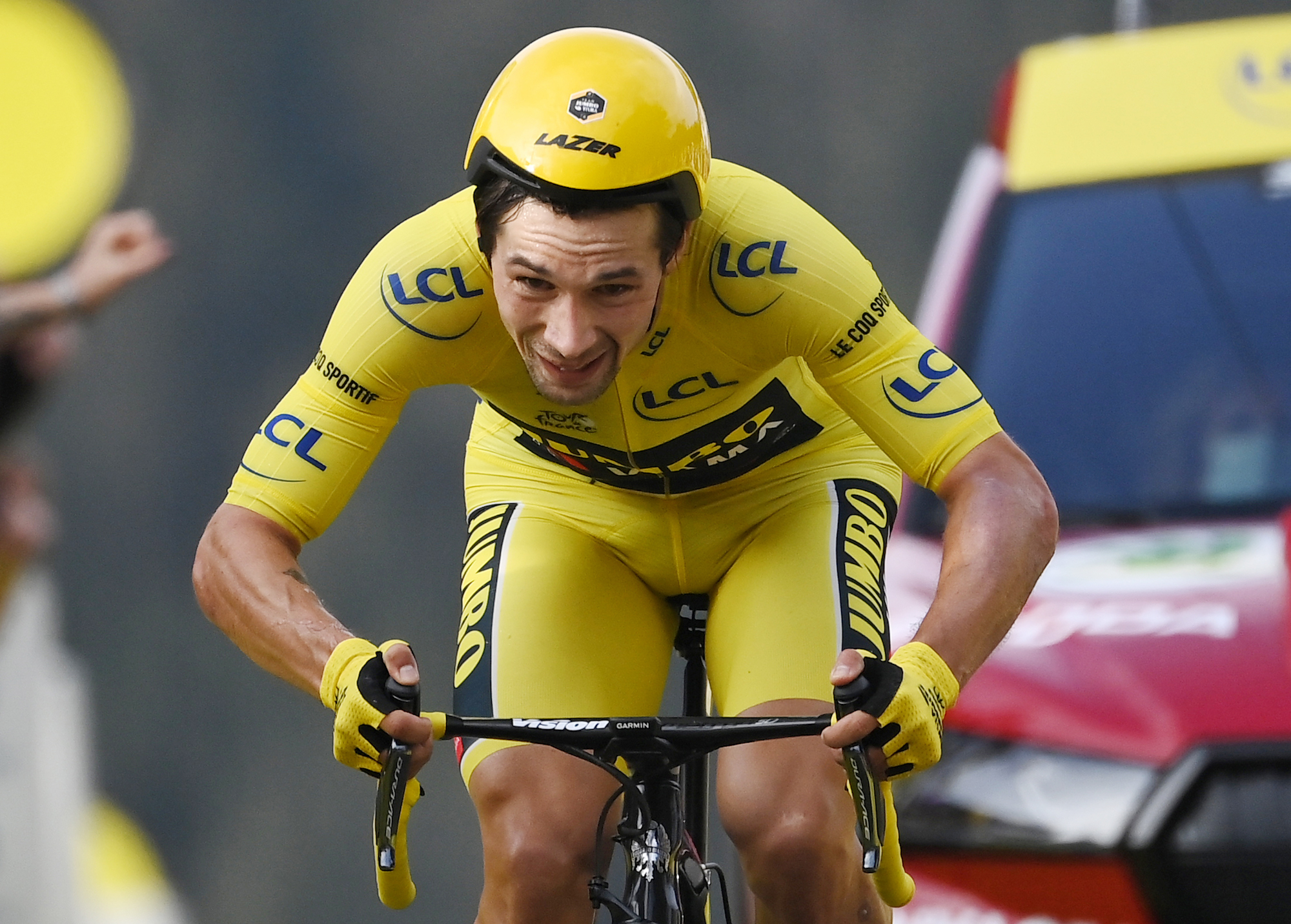
"You know what I don't give a f**k about this," Roglič says to his team-mates as he walks through the hotel lobby on his way to get his yellow time trial suit fitted.
"I think you should go for short sleeves," is the advice a member of backroom staff offered.
"But last year Julian took the long sleeve and he won so can't be bad," is Roglič's retort.
Roglič is clearly tiring from three weeks of racing and the demands of the yellow jersey.
A spectator nearly walks out in front of Roglič on the recon of the TT course the next morning, Jumbo-Visma then practicing the bike change as the road kicks up to the finish line at La Planche des Belles Filles.
"About the helmet I'm not sure," Roglič says when he dismounts, a coach also reminding him to take the visor off at the bike change, which he did, giving us the full view of his suffering as he lost the Tour de France.
In the team car, tensions mount as Pogačar's advantage keeps increasing.
"How fast can that boy ride?!" says one sports director. The domestiques already finished and sat outside their caravan can hardly watch.
As the team try to regroup and digest what has just happened, DS Frans Maassen offers an upside to Dumoulin.
"Second in a TT, not bad huh?"
"Yeah but behind f**king Pogačar who sits on his bike as a junior," seethes Dumoulin.
"A minute and a half [Pogačar's winning gap over Dumoulin] huh?! While I'm a world...with today's time trial I'd go to Bergen [where he won his TT rainbow jersey] and again have become world champion.
"I just don't understand how this guy then...he would also have had me in Bergen if he rides a minute and a half better! I can't find any solution think about how in God's name I should have been a minute and a half faster."
"There's not much to say huh, sometimes you win sometimes you lose," Roglič says in his team car.
"How did you feel?" asks team boss Richard Plugge.
"I was feeling 110 per cent far from enough."
Roglič finally cracks as he waits for the final podium press conference.
"Ah, f**k...I still cannot understand two minutes, that's a big difference.
"I don't know...they have to calculate what kind of power to achieve that time. That is just a different world. I cannot understand it. If you can ride so hard then every stage you have to be with one leg. 1-20 in 36km, 55 minutes."
Jonny was Cycling Weekly's Weekend Editor until 2022.
I like writing offbeat features and eating too much bread when working out on the road at bike races.
Before joining Cycling Weekly I worked at The Tab and I've also written for Vice, Time Out, and worked freelance for The Telegraph (I know, but I needed the money at the time so let me live).
I also worked for ITV Cycling between 2011-2018 on their Tour de France and Vuelta a España coverage. Sometimes I'd be helping the producers make the programme and other times I'd be getting the lunches. Just in case you were wondering - Phil Liggett and Paul Sherwen had the same ham sandwich every day, it was great.